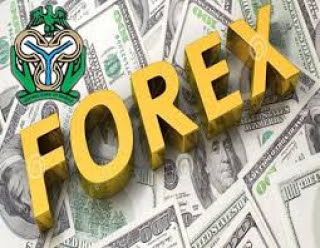Nigeria’s currency, the Naira, sustained its depreciative streak in exchange value against the US dollar on Thursday at the parallel market, trading at an average exchange rate of N765/$1, representing 0.26% dip in value when compared to the N763/$1 it exchanged at in previous day’s trading session.
Some FX dealers in the Federal Capital Territory linked the depreciation of the Naira to a surge in the demand for the US dollar at the market as investors begin to warm up for anticipated boom in business activities in the economy effective from next week.
The Naira also weakened in exchange value against the Euro by 0.24% yesterday, settling at an average rate of N820/€1, compared to the N818/€1 it exchanged at on Wednesday.
However, it recorded 0.73% exchange rate appreciation against the British Pound Sterling during the day’s trading session, to trade at an average rate of N955/£1. The previous day, it traded at N962/£1
The local currency, however, lost at the cryptocurrency Peer to Peer (P-2-P) Exchange market, to trade at a minimum of N775.05/$1, indicating 0.85% depreciation in value compared to the N768.50/$1 it traded the previous day.
Over the past years, the Central Bank of Nigeria (CBN) had been supplying dollars to FX traders at the both the official window and parallel market as part of its efforts to achieve a stable exchange rate for the Naira against other foreign currencies.
Though many financial experts believe that the apex bank’s interventions at the I&E window is affecting the foreign reserves’ accruals, the benefits of the CBN’s monetary policy action on the FX market cannot be over-emphasized in view of the job creation and other value addition parameters.
Analysts also attributed the not very strong foreign reserves position of the country to other factors, including the changing pattern of foreign trade, especially as it relates to the global supply chain in recent months, institutional changes in the economy and structural shifts in production, amongst others.




